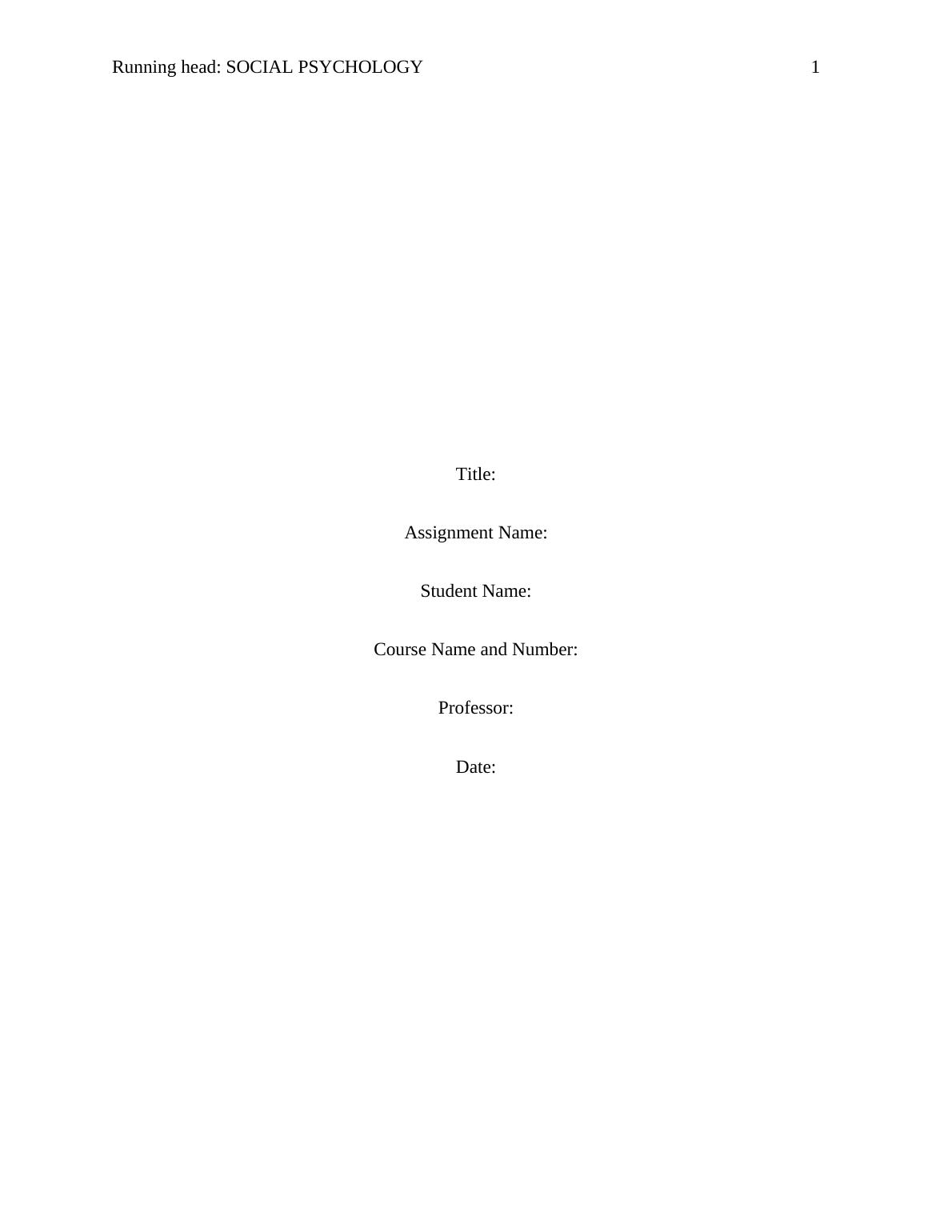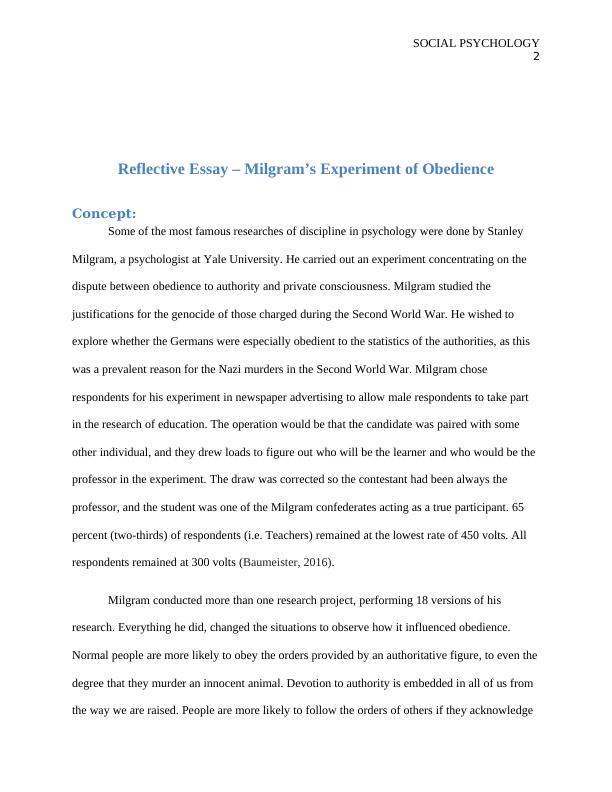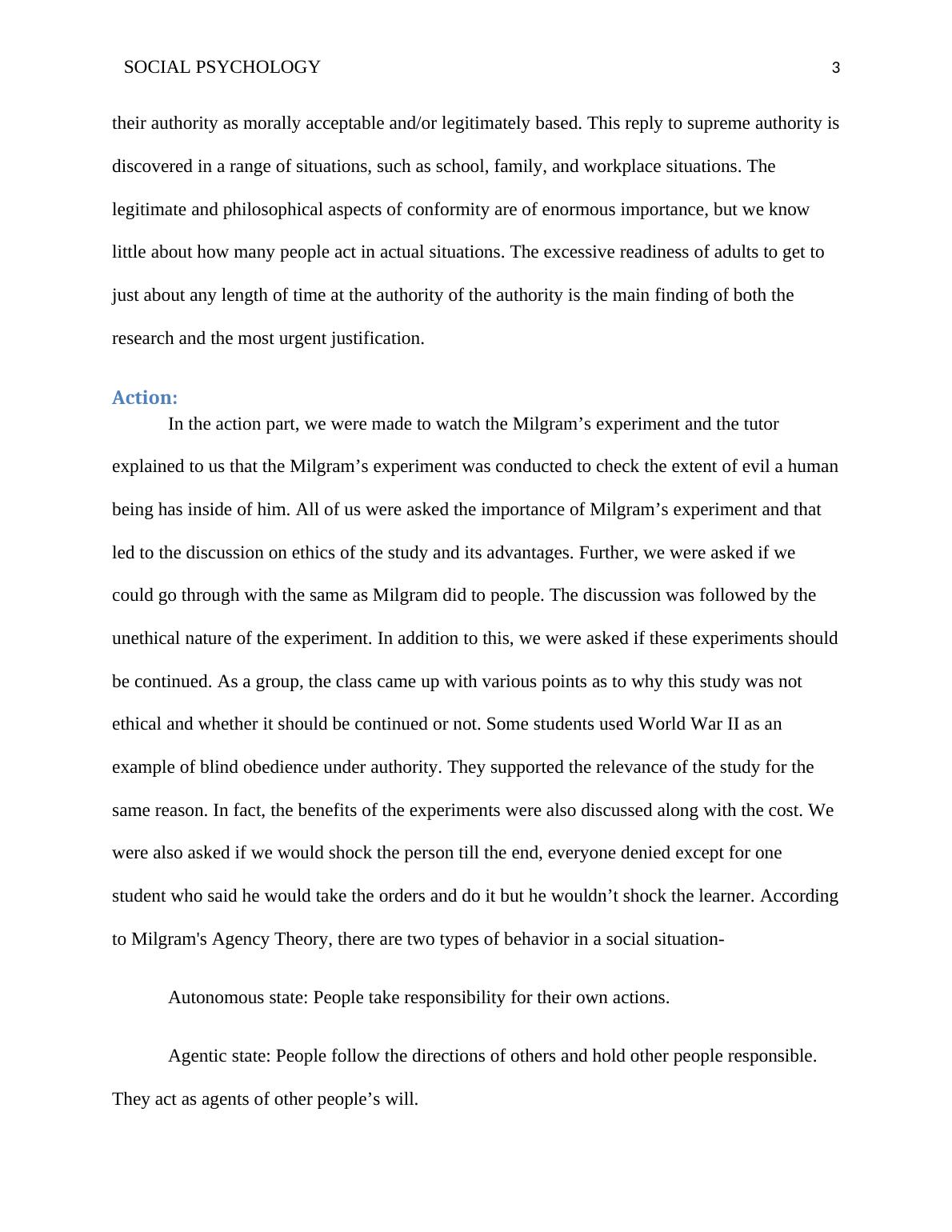Milgram's Experiment of Obedience - Reflective Essay
This assignment is a reflective essay on the concept of cognitive dissonance and its application in social psychology.
7 Pages1717 Words312 Views
Added on 2022-10-16
About This Document
This reflective essay explores Stanley Milgram's experiment of obedience and its ethical implications. It discusses the concept, action, and reflection of the experiment and its relevance in social psychology.
Milgram's Experiment of Obedience - Reflective Essay
This assignment is a reflective essay on the concept of cognitive dissonance and its application in social psychology.
Added on 2022-10-16
ShareRelated Documents
End of preview
Want to access all the pages? Upload your documents or become a member.
PHIL 226 - Biomedical Ethics
|9
|2201
|332
Similarities and Differences between Milgram's Obedience Studies and Burger's Replication Study
|6
|1332
|258
Understanding the Psychology of Authoritarianism and Obedience
|5
|1149
|100
Ethical Dilemmas in Stanford Prison Experiment
|5
|1133
|475
Virtue Ethics and Corruption
|5
|1009
|57
The Effect of Gender Assignment 2022
|11
|2817
|14



